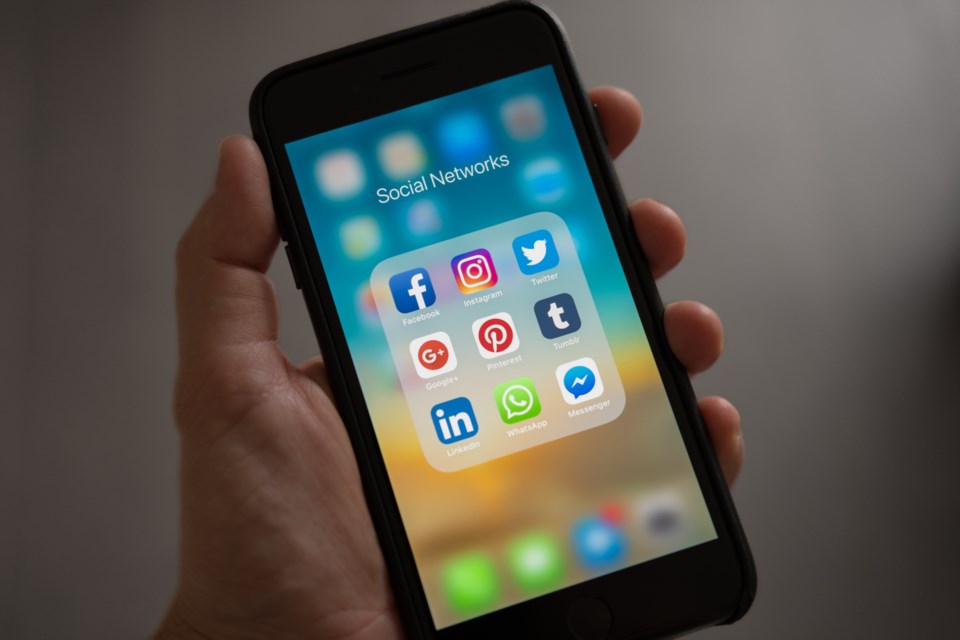Doctors and other health-care professionals are speaking out about the abuse they endure on social media for commenting on various medical topics.
The issue was described in a recent article in the Canadian Medical Association Journal.
The article highlighted numerous situations in Canada and the U.S. where physicians have received intimidating emails and negative comments for things they have said in public forums.
Dr. Najma Ahmed, a Toronto trauma surgeon, was quoted in the article about experiencing "intense harassment" from pro-gun advocates after she spoke to the media about the need for tougher gun control.
According to the article, Dr. Ahmed said she was surprised at the level of the online harassment directed at her after she spoke out after treating numerous victims of a mass shooting in Toronto's Danforth Avenue district.
Ahmed had been advocating to have legislators treat mass gun violence as a public health issue.
"The objective of making these complaints is to cause hassle and stress for the physician, and it certainly did do that," said Ahmed, in a radio news report.
The COVID-19 pandemic appears to be drumming up more angst and anger among citizens who believe that doctors should not be commenting on public health issues. In some cases it goes beyond social media commentary.
In Saskatchewan, a crowd of angry citizens gathered outside the home of Dr. Saqib Shahab, the provincial chief medical health officer, to protest against pandemic public health restrictions implemented by the provincial government.
The protest sparked an outcry from other citizens who felt it was wrong to take a political protest to the home of a provincial employee. Even Saskatchewan Premier Scott Moe described the protesters as "idiots.”
In most jurisdictions in Canada, employers are responsible for ensuring their employees do not experience threats of violence, abuse or intimidation in their workplace.
The CMAJ report said physicians across North America have experienced similar complaints about their presence online.
"In a recent survey of 460 American physicians published in JAMA Internal Medicine, nearly one in four reported being attacked on social media," said the article.
"According to the study authors, these attacks were not simple “spats.” The harassment ranged from posting fake reviews and complaining to physicians’ employers, to racist abuse, violent threats, and doxing (exposing private information, like a physician’s home address, without consent). Abuse levelled at women was much more likely to be sexually explicit. One in six female physicians reported they had been sexually harassed online, including receiving rape threats, compared to nearly one in 50 of their male colleagues," said the article.
A similar article was published in May 2020 in The Lancet, a world leading British medical journal, that revealed that since the beginning of the pandemic, health-care workers around the world have been subject to violence and abuse from people upset with health restrictions.
"Nurses and doctors have been pelted with eggs and physically assaulted in Mexico. In the Philippines, a nurse was reportedly attacked by men who poured bleach on his face, damaging his vision. Across India, reports describe health-care workers being beaten, stoned, spat on, threatened, and evicted from their homes. These are just a few examples among many across numerous countries, including the USA and Australia," said the report.
A JAMA Network article from August 2020 said much of the harassment and abuse is related to the anti-vaccine movement that began five years ago.
"Since the 2015 measles outbreak that focused attention on vaccine policy, individuals opposed to vaccination mandates have attacked health officials and legislators online or in person in Oregon, Washington, New York, New Jersey, and Colorado," said that report.
"Some of the same groups, joined by other individuals frustrated with public health officials, are now actively resisting efforts to require masks, reinstitute business closures, and prepare for COVID-19 vaccination, jeopardizing the eventual acceptance of vaccines," the report continued.
Some physicians say the best way to deal with online abusers is to ignore them.
“Sometimes the most appropriate response is not to engage,” said Winnipeg surgeon Dr. Gigi Osler.
“For social media trolls, engagement is their oxygen.”
To avoid abuse, some health advocates have quit social media, while others have reduced their online presence.
The CMAJ report said there are few formal supports for health care professionals who face online abuse. The report quoted Canadian Medical Association president Dr. Ann Collins who said protection is needed for physicians who speak up on health issues. Collin spoke out against bullying two weeks ago.
"We must speak out against such intimidation, whether online or in-person, and urge those responsible for overseeing social media platforms and law enforcement bodies to put an end to this highly alarming conduct. Peaceful protests are an important feature of our democracy, but these recent demonstrations have crossed a crucial line between free speech and willful intimidation," said Collins.
"Public health officials and health care workers in Canada have been working tirelessly — under stressful and very challenging conditions — since the beginning of the pandemic to keep Canadians healthy and safe. They deserve nothing short of our full appreciation and respect."



